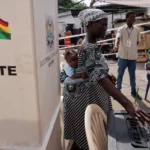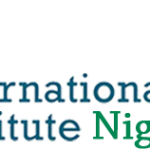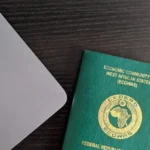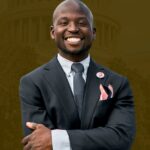As a sitting president readies to go for a controversial attempt at re-election, Ivory Coast’s political landscape looks increasingly hazy. Will a third bid for Ouattara prove to be the charm, or the straw that breaks the proverbial camel’s back?
Tomorrow lies the beginning of a major test for Ivory Coast, as the country goes to the polls in what is seen globally as a tense situation, chiefly because of President Alassane Ouattara’s controversial decision to seek a third term. Early March, he had declared he would not stand for re-election, slyly pointing out that 2016-introduced constitutional amendments allowed him to.
He even pledged to let a new generation take charge, even as he backed Prime Minister Amadou Gon Coulibaly for president. That announcement – and the backing that followed – appeared to douse tension and months of uncertainty, ending the conflict between the RDHP and the opposition ahead of the presidential election on the 31st of October.
But a few days after returning to Ivory Coast from a medical trip to France, Coulibaly, 61, became ill during a cabinet meeting, and died. It created a vacuum in the party, and in no time, party officials began to press Ouattara to revisit the idea of running. Unsurprisingly, he caved in on the 6th of August and accepted. A massive uproar followed from the opposition, who tagged it a veritable coup. Protests followed, and many ended up dead, with the government accused of using excessive force against protesters. The tense atmosphere that followed is currently threatening the 10 years of relative peace the country has enjoyed, despite never going through a peaceful or democratic transition of power.
While excellent international ties have also seen the nation basking in prosperity, the current reality does not bode well for Ivory Coast, which has against all odds enjoyed some modicum of stability. But rewind to 2002, when a failed coup sparked a civil war that halved the country, as then-president Laurent Gbagbo controlled the South, leaving the North to the rebels known as Forces Nouvelles. Fast-forward to 2010, when months of post-election violence were kick-started by a delayed vote because Gbagbo refused to stand down after Ouattara was declared winner. Epic blame-trading followed, even as almost 3,000 people were killed in the fighting that followed between both sides.
Today, however, Ouattara – after assuming power in 2011 – is the leader of a nation that seems to have finally gotten it right, even if naysayers would point out that it is only to an extent. A fast-growing economy has helped, even if it has been somewhat stunted by the on-going COVID-19 pandemic. His focus, also, on infrastructure has helped his standing with international powers and players. However, social and economic issues began to fester, and worsen. Hunger led to anger, in a country of about 50 million, with half that number wallowing in poverty.
From the beginning when cracks showed, opposition leaders cast suspicious glares on the electoral commission, as well as its independence, or what they say is a lack of it. One of them, ex-rebel chief Guillaume Soro, is in France chilling in exile after coup-plotting and embezzlement accusations were levelled at him. Then one of the more famous – or infamous – ones, Gbagbo, is in Brussels after being acquitted of charges of crimes against humanity in The Hague. Even though he has been cleared to travel, the refusal of the Ivorian authorities to issue necessary documents has rained on that parade.
But as far as candidates are concerned, the following will give Outtara a run for his money, in varying degrees: Pascal Affi N’Guessan, notably from Gbagbo’s party, which unfortunately faces in-fighting of monumental proportions. There is, also, ex-president Henri Konan Bédié, 86, generally believed to be the main challenger to offer needed spunk against Ouattara. Third, is Kouadio Konan Bertin, 51, who once had ambition of standing as a candidate for the PDCI. The former MP now stands as the only independent candidate to run come October 31.
The nation’s political parties are famous for being built on individuals, with voting patterns taking ethno-regional directions. Even with the advantage of the incumbent, Ouattara obviously has his work cut out for him. He had promised to ensure accountability for the crimes committed during the 2010-2011 violence, but it appears the transitional justice process has mainly targeted Gbagbo’s loyalists, with Ouattara’s exempted. This, along with many other factors have fuelled debate – and a raging furore – over his eligibility. But his loyalists cling on to what they describe as his right to contest.
There are many negative variables to consider: Disgruntled candidates, a disenfranchised electorate, and controversial circumstances, among others. But with just hours left to the polls, heavy clouds of doubt, fear, and even anger, loom over the country’s political vista. The upcoming election has more than earned its reputation for having the potential of either making or breaking that nation. But only time, and votes cast, can tell.

 Join Daily Trust WhatsApp Community For Quick Access To News and Happenings Around You.
Join Daily Trust WhatsApp Community For Quick Access To News and Happenings Around You.


